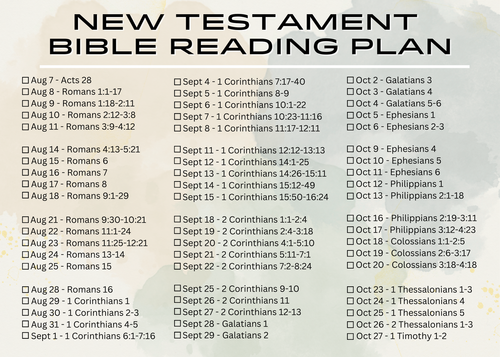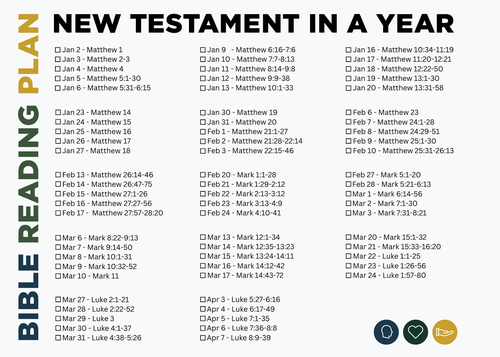The Corinthian church is composed of diverse individuals who all partake in Spirit baptism. Spirit baptism is when Christ, through God's regeneration, places Christians in the Holy Spirit, thereby incorporating them into the body of Christ.
The human body is composed of multiple interdependent parts, skillfully designed and arranged by God according to His plan. It would be impossible for a body to function if it consisted of only one part. Each part is significant and works together for the whole body's well-being. While we don't expose our private parts to others, they are essential and deserve greater modesty and respect.
Paul's analogy regarding a physical body has been leading up to this moment. The church in Corinth is referred to as "the body of Christ," God has intentionally designated individuals with diverse spiritual gifts. Paul lists the initial three gifts, likely arranged chronologically: God appointed apostles, followed by prophets during Pentecost, and then teachers were appointed.
"Apostles" refers to the Twelve. Christ specifically called and commissioned these men as apostles (Matt. 10:1–15; Acts 1:24–26; Rom. 1:1; Gal. 1:1), and these men witnessed the resurrected Jesus (Acts 1:22; 1 Cor. 9:1; 15:7–9). Jesus commanded the church through the apostles (2 Pet. 3:2).
Every Christian is blessed with certain gifts, but no Christian possesses all of them. As a result, fellow church members rely on one another to function in a mutually beneficial and thrive.
Desire earnestly the greater gifts that contribute the most to the church's edification when it gathers together. However, before addressing that specific issue, Paul presents to the Corinthians an even more excellent way - the way of love. Even if we possess all the remarkable gifts mentioned, they hold no value without love. Paul emphasizes that even if we perform the most seemingly selfless act to boast in our weakness, it is meaningless if done without love. To truly "have" love is to demonstrate loving behavior.
It is not possible for a flawed human to perfectly embody love, especially when Christians exercise their spiritual gifts during church gatherings. However, the gospel demands that God's people grow in purity and unity, meaning Christians must mature in their ability to love.
Prophecies, tongues, and knowledge will cease as they become unnecessary. There is a significant contrast in maturity between how a child speaks, thinks, and reasons compared to an adult. The disparity between our present and future knowledge will be the difference between being in complete darkness with only a flashlight and being outside in bright sunshine. Faith (trusting in what we cannot see) and hope (confidently expecting God to fulfill His promises) are temporary; they will no longer be needed "when the perfect comes." However, "love never ends."
The human body is composed of multiple interdependent parts, skillfully designed and arranged by God according to His plan. It would be impossible for a body to function if it consisted of only one part. Each part is significant and works together for the whole body's well-being. While we don't expose our private parts to others, they are essential and deserve greater modesty and respect.
Paul's analogy regarding a physical body has been leading up to this moment. The church in Corinth is referred to as "the body of Christ," God has intentionally designated individuals with diverse spiritual gifts. Paul lists the initial three gifts, likely arranged chronologically: God appointed apostles, followed by prophets during Pentecost, and then teachers were appointed.
"Apostles" refers to the Twelve. Christ specifically called and commissioned these men as apostles (Matt. 10:1–15; Acts 1:24–26; Rom. 1:1; Gal. 1:1), and these men witnessed the resurrected Jesus (Acts 1:22; 1 Cor. 9:1; 15:7–9). Jesus commanded the church through the apostles (2 Pet. 3:2).
- "Teachers" explain and apply Scripture clearly.
- "Helping" refers to "helpful deeds."
- "Administrating" refers to "varieties of such leading positions in the ecclesial body of Christ."
Every Christian is blessed with certain gifts, but no Christian possesses all of them. As a result, fellow church members rely on one another to function in a mutually beneficial and thrive.
Desire earnestly the greater gifts that contribute the most to the church's edification when it gathers together. However, before addressing that specific issue, Paul presents to the Corinthians an even more excellent way - the way of love. Even if we possess all the remarkable gifts mentioned, they hold no value without love. Paul emphasizes that even if we perform the most seemingly selfless act to boast in our weakness, it is meaningless if done without love. To truly "have" love is to demonstrate loving behavior.
- Love is characterized by patience and forbearance, demonstrating a willingness to endure hardships. It chooses not to seek revenge.
- Love is marked by kindness, mercy, and compassion. It triumphs over evil with acts of goodness.
- Love does not feel envy, which is the desire for what others possess; instead, it is content and not resentful of their blessings.
- Love does not boast or seek to inflate one's ego by receiving praise.
- Love is not arrogant, avoiding the temptation to have an exaggerated self-perception.
- Love is considerate and respectful, never behaving rudely or indecently. It goes above and beyond to honor others.
- Love does not insist on having its way but instead takes into account the interests and needs of others.
- Love is not easily irritated, remaining calm and composed even in the face of minor offenses.
- Love does not hold onto grudges or seek revenge. It forgives and pursues reconciliation.
- Love does not find joy in wrongdoing but rejoices in truth and righteousness.
- Love endures any hardship or difficulty for the sake of spreading the gospel.
- Love chooses to believe the best about others instead of being cynical or suspicious.
- Love desires the well-being and flourishing of others.
- Love never gives up or loses hope.
- Love is eternal.
It is not possible for a flawed human to perfectly embody love, especially when Christians exercise their spiritual gifts during church gatherings. However, the gospel demands that God's people grow in purity and unity, meaning Christians must mature in their ability to love.
Prophecies, tongues, and knowledge will cease as they become unnecessary. There is a significant contrast in maturity between how a child speaks, thinks, and reasons compared to an adult. The disparity between our present and future knowledge will be the difference between being in complete darkness with only a flashlight and being outside in bright sunshine. Faith (trusting in what we cannot see) and hope (confidently expecting God to fulfill His promises) are temporary; they will no longer be needed "when the perfect comes." However, "love never ends."





Recent
Archive
2023
January
Happy New Year!He Will Save His People From Their SinsMy Beloved SonTemptation And MinistryThe SermonLeaving, Lying, Limits, Love, Largesse, and The Lord's PrayerTreasure, Anxiety, and JudgmentAstonishing AuthorityStorms, Demons, and HealingJesus Is CompassionateHis Eye Is On The SparrowSwords, Rewards, and MessengersThe Lord of the SabbathBlasphemy, Bad Trees, Signs, and FamilyStories, Sowers, and SoilsParables, Hidden Treasure, and RejectionFame, Food, Fear, Faith, and FringeReal Issues And The Power Of GodDying To Find LifeLike The SunChildren, Temptation, Sheep, And ForgivenessMarriage, Kids, And MoneyTo Serve And Give His Life
February
The ArrivalStories That StingQuestion TrapsHidden Motives And LamentThe End...?UnexpectedReady?Punishment, The Plot, And PerfumeTreachery, Passover, and The CupBetrayal, Injustice, And DenialThe Field Of Blood And The GovernorCrucifixion And DeathAll AuthorityMark—The Beginning Of The GospelHealing, Preaching, And The Forgiveness Of SinEating With Tax Collectors, Fasting, The Sabbath, And An Escape BoatThe Twelve, Blasphemy, Family, And A ParableParables And PowerA Different Kind Of StormPower Had Gone Out
March
Death, Hunger, And MiraclesCommandment Or TraditionDo You Not Yet Understand?The Christ And A Glimpse Of His GloryUnbelief, Confusion, And SinDivorce, Children, And PossessionsTo Give His Life As A RansomHosannaThe Rejected Stone, Taxes, And The Great CommandmentDestruction And The EndNo One Knows, An Anointing, And A Promise To BetrayPassover And GethsemaneThe Kiss, Arrest, And DenialPilate, Simon, And The CrucifixionDeath, Burial, Resurrection, And What\'s NextTheophilus And A Visit From GabrielMary And The MagnificatBenedictusThe Arrival And The ShepherdsSimeon, Anna, And The SpiritFruits Keeping With Repentance And BaptismThe Wilderness, Nazareth, And CapernaumSimon's Mother-In-Law, Fishing, A Leper, And Sins
April
Tax Collectors, Fasting, Sabbath Controversies, And The TwelveWhy Do You Call Me Lord, Lord?Jesus Marveled, A Raised Son, And QuestionsA Sinful Woman And A ParableObeying The Word, A Storm, And DemonsTwelve Years, Twelve Apostles, And SpeculationGreater, Costly, And GloryNot Getting It, The Cost, And AppointedWoes, Neighbors, And What Is NecessaryHelp Us Pray And A Divided Kingdom?Signs, Lights, And WoesHypocrisy, Fear, A Fool, And AnxietyParables, Division, And The TimesWarnings, A Daughter Of Abraham, And Jerusalem, JerusalemA Son Or An Ox, Parties, And DiscipleshipLost ThingsThe Dishonest Manager, The Law, And Anguish In This FlameMillstones And Mustard SeedsPersistent Prayer, Humility, A Childlike Faith, And The Rich RulerEverything That Is Written, A Blind Beggar, And A Wee Little Man
May
A Parable, A Colt, A Prophecy, And A CleansingAuthority, Wicked Tenants, And TaxesThings To Beware Of And WidowsDestruction, Persecution, The Son Of Man, And WatchingThe Plot, Betrayal, Lord's Supper, And Inappropriate BehaviorPrediction, Fulfillment, Agony, Betrayal, And DenialMistreated, Taken Before The Council, Pilate, Herod, And Delivered To Be CrucifiedCrucifixion, Death, And BurialHe Is Not HereDisbelieved For JoyIn The Beginning…The Lamb Of God And A WeddingZeal, What's Inside, And Born AgainHe Must Increase
Categories
no categories
Tags
no tags
